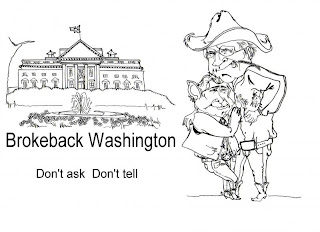Jason Trahan at the Dallas Morning News reports:
A task force led by U.S. Immigration and Customs Enforcement raided more than two dozen mostly Latino night clubs, restaurants, pool halls and other businesses Saturday night, arresting 49 undocumented immigrants employed as security guards, officials said.The investigation into these security guard providers might be ongoing because in Texas, as in most States, security services are a regulated business for which a license must be obtained.
All of those arrested work for two local security companies, which authorities declined to identify Sunday.
According to the Texas Department of Public Safety:
Under state law, commissioned security officers must successfully complete a 30-hour school. Once the course is completed, commissioned officers must wear a specific uniform indicating the company by whom they are employed while carrying their weapons.
Applicants for licensing or registration by the Private Security Bureau must have undergone a fingerprint-based state and national criminal history check. Applicants who have been convicted of a felony or a Class A misdemeanor cannot be considered for a license for 20 years. Applicants convicted of a Class B misdemeanor can apply for consideration after 5 years. Some Class B misdemeanors, such as first-time DWI, do not disqualify an applicant from receiving a license or application.
Maybe this is why -- despite the lack of official commentary on the matter -- Craig Watkins the Dallas County District Attorney stated:
Hopefully, this operation will help us send a message that we will not tolerate the falsification of documents for undocumented aliens under the guise of providing security.
Counterfeit documents are a huge problem and enable a lot of illegally placed individuals to obtain employment that they would otherwise be barred from. Given that they are easily available, they are a gateway for all kinds of other criminal activity, also.
This isn't the first time, a story has broken, where counterfeit documents allowed people using an unverified or even someone else's identity to perform duties they never should have been able to.
Although a few miles from Dallas, in November, James Slack of the Daily Mail revealed that 5,000 illegal immigrants were working as security guards in some of the United Kingdom's most sensitive buildings.
In January of 2007, the Herald Tribune reported that 40 illegal immigrants were arrested on military bases by ICE. The same story referenced an earlier story, where 60 illegal immigrants were arrested at Fort Bragg, North Carolina, home of the 82nd Airborne Division and Special Operations Units.
Earlier this month, Neville W. Cramer wrote in Today's Facility Manager about the growing problem from a facility management perspective:
While there are a multitude of economic and social issues surrounding the millions of illegal aliens currently in the U.S., two issues should be of specific concern to facility managers (fms). The first is security, and the second is comprehensive immigration reform. Since the latter is currently hung up in Congress, this article will examine security first.
Federal, state, and municipal law enforcement agencies are well aware that some of the largest employers of illegal aliens are directly and peripherally involved in building services and maintenance. Whether it is the cleaning crews, the janitors, the trash removal workers, or the security guards, illegal immigrants make up a significant portion of the workforce.
While this recent event in Dallas highlights the illegal immigration problem from the South -- there are illegal immigrants from other parts of the World working as security guards -- who likely have been planted in facilities or organizations for the purposes of stealing information.
From the Today's Facility article:
For instance, organized criminals from West Africa (Nigeria, Ghana, Sierra Leone, etc.) are now firmly entrenched nationwide in the security guard business. They are usually educated, well mannered men and women who are willing to work weekends and midnight shifts.
Unfortunately, what is not widely known is that “while guarding the henhouse,” many of these contracted security workers are suspected of stealing employee and customer identity data and company proprietary information. In some instances, these guards are using multiple fraudulent identities themselves, making it almost impossible for law enforcement to catch up with them. Fms should be aware of these emerging trends and, along with law enforcement and security professionals, take whatever steps are necessary to mitigate their risks.
The article sums up it's thoughts with the well known fact that the current Employment Eligibility Employment Verification Form (1-9) is woefully inadequate, especially with all the stolen identities and counterfeit documents that are easily obtained, just about anywhere.
Even with no match SSN legislation forthcoming -- which will require social security numbers to match a name -- the system will probably still be manipulated. There is a lot of stolen information out there, which contains both names and social security numbers, already. The groups counterfeiting documents will just have to make sure everything matches.
This is likely to cause an explosion in the number of identity theft cases, which is already a growing problem.
This legislation, which has been held up by a Federal Judge in San Francisco at the behest of the ACLU and other groups, appears to be poised to be enacted in the near-term. Arizona, which has the highest rate of identity theft in the nation, has already enacted a similar law.
Dallas Morning News story, here.
Well written and informative article by Neville W. Cramer, here.
If you want to learn more about the easy availability of counterfeit documents and how they are being dispensed throughout the U.S. (and probably the World) by organized criminal gangs, I recommend going to Suad Leija's Paper Weapons site. The information on this site has been covered extensively by the mainstream media and is likely being used by government entities to discover the full scope of this scary problem.




